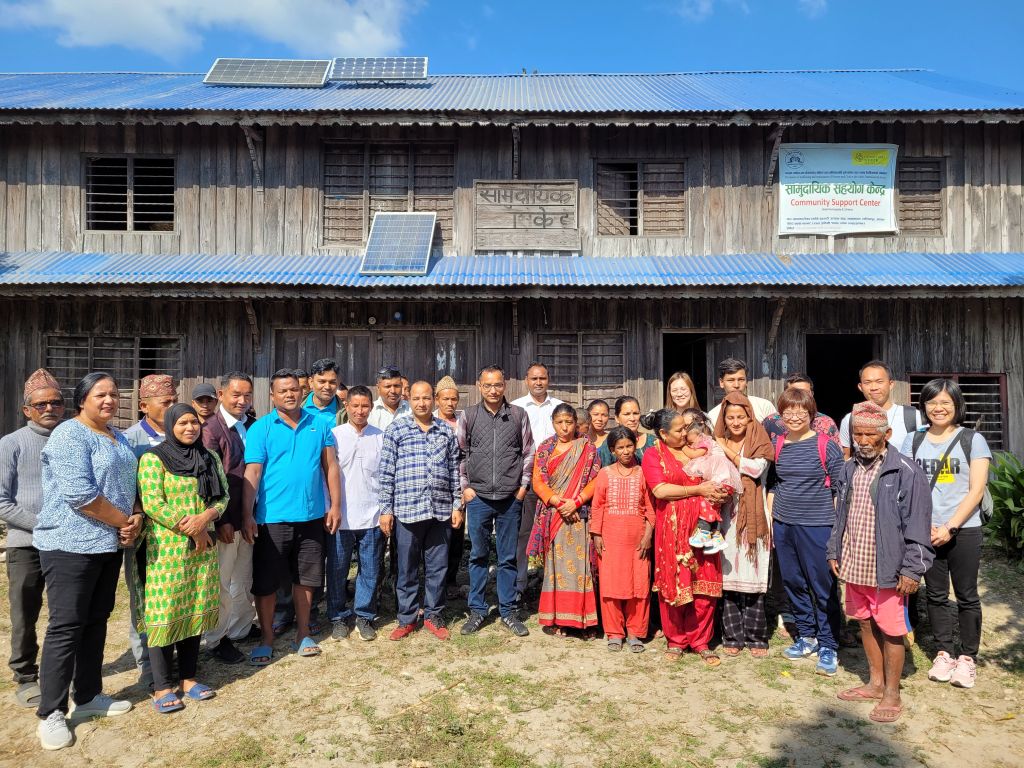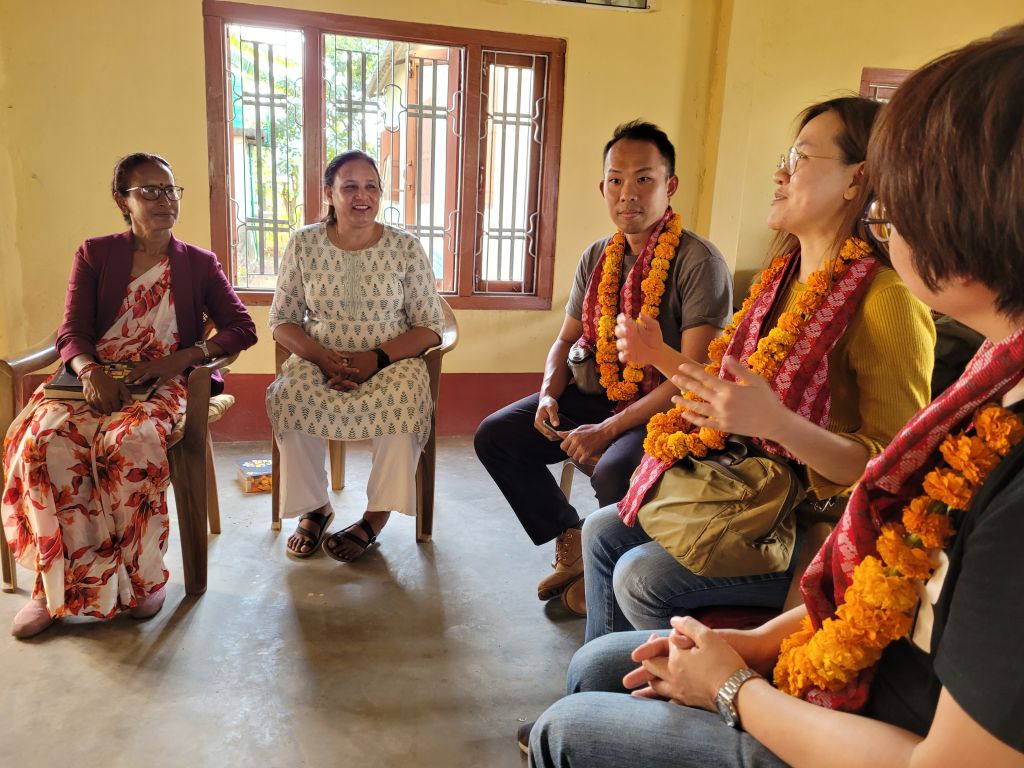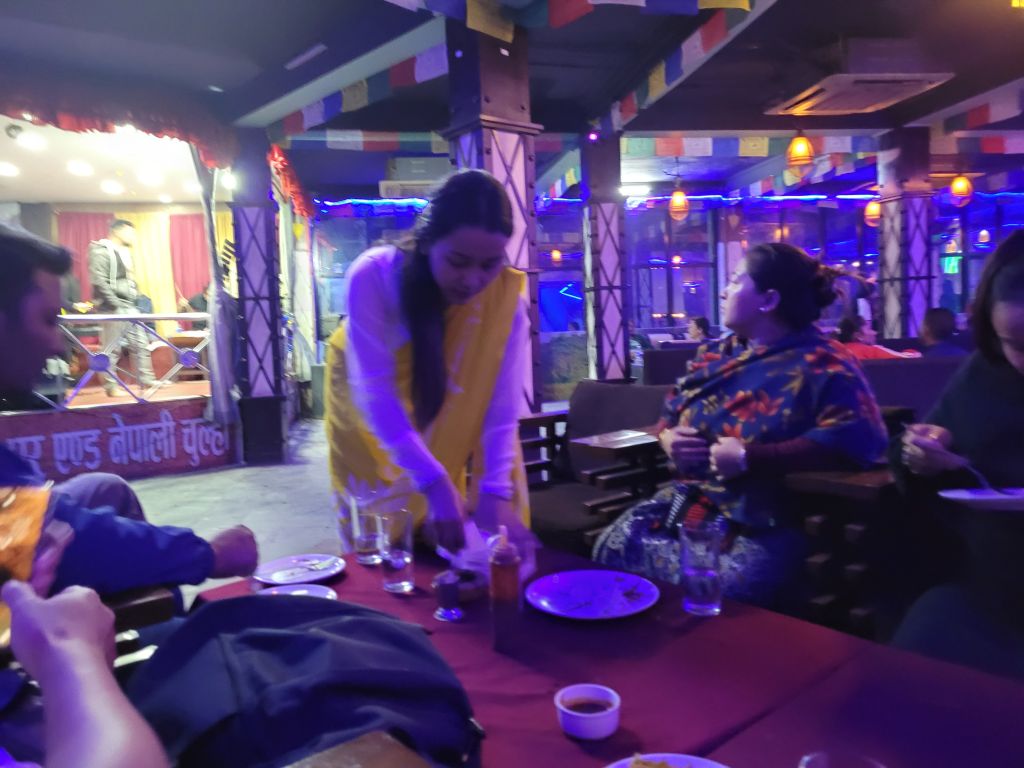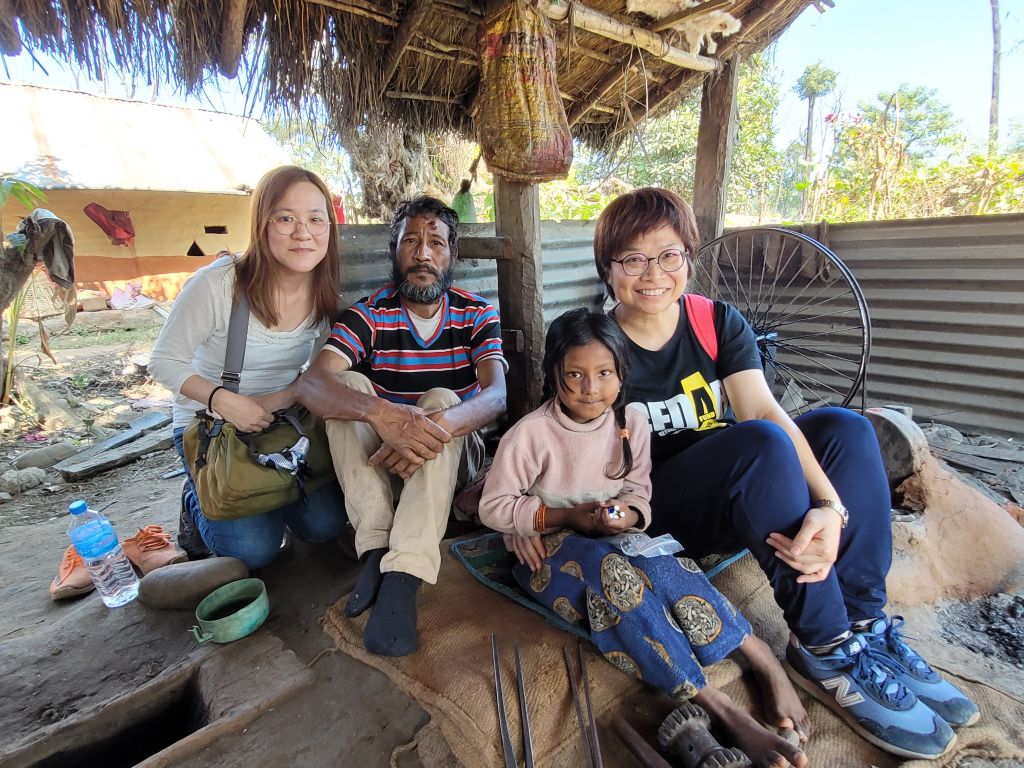Written by: Gloria Cheung (Senior Communications Officer)
Two of our staff members and two pastors from a church supporting CEDAR’s ministry visited the Chitwan region in Nepal in mid-November. They visited Samari Utthan Sewa (SUS), a longstanding partner in the area, to gain a deeper understanding of the challenges faced by Dalits, particularly vulnerable women and children. Dalits, labelled as the lowest ‘untouchable’ caste in the unequal caste system, are a group that is susceptible to trafficking and exploitation.


Although the discriminatory caste system has been officially abolished by the Nepalese government, severe cultural discrimination persists. This has resulted in the Dalits, who make up over 13% of the local population, approximately 5 million people, being regarded as the lowest social class. They face significant social discrimination and exclusion in various aspects of life since birth, including education, employment, and daily living. Due to the exploitation of basic livelihood opportunities, many Dalits are burdened with debt. With no other choice, many impoverished Dalit girls work in the adult entertainment sector, with some even being underage. According to our partner data, over 80% of girls working in this sector have experienced sexual violence and exploitation, with 13% of victims being between the ages of 10 and 14. Our staff visited a nightclub during the trip and witnessed that these girls lack legal protection under labour laws and face safety risks. ‘Many girls claim to be 23 years old to outsiders, but privately, we know many “waitresses” are only in their early teens. We also witnessed some customers smoking hookah and taking advantage of them.’


During a visit to the local community, our staff discovered that many Dalits were living in helplessness and despair. ‘We visited a villager who works as a blacksmith in the village. He suffered a head injury in an accident, which led to mental health issues. His sister, who was a victim of rape, gave birth to a daughter and then fled, leaving the orphaned child in his care. The niece is now five years old, but he is unable to support her and is considering sending the girl to an orphanage outside the village. Our partner pointed out that there is a high chance that this girl could become a victim of trafficking.’
Yet, in the midst of darkness, we hope that the love of the Lord can bring a glimmer of light. A 28-year-old young Dalit pastor, upon receiving the Lord’s calling, embarked on seven days of prayer and fasting with six young individuals to establish a church. Through divine intervention, a believer from Singapore received a vision during prayer and learned that there were people in Nepal engaged in fasting and prayer. She then connected with someone to locate this Dalit pastor and offered support for the construction of the church. Partners shared that Dalits have been barred from entering religious spaces due to discrimination. However, because the church is willing to welcome them and help Dalits break free from their predicament, many have come to know and believe in Jesus.
Since 2014, CEDAR has been working with SUS and is dedicated to serving the oppressed. In addition to providing informal education such as anti-trafficking through self-help groups, they have also produced pamphlets specifically about the adult entertainment sector, educating local people about human trafficking and raising awareness of their human rights.
‘Whoever oppresses the poor shows contempt for their Maker, but whoever is kind to the needy honours God.’ (Proverbs 14:31). According to the teachings of the Bible, honouring God includes showing compassion towards the vulnerable. Dalits are ignored and excluded by society, living in darkness. May we honour God by not forgetting the needs of Dalits, showing them compassion, walking alongside them, providing a way out for them, and helping them break free from the darkness and bondage of oppressive forces.
Whoever oppresses the poor shows contempt for their Maker, but whoever is kind to the needy honours God.
Proverbs 14:31
According to the teachings of the Bible, honouring God includes showing compassion towards the vulnerable. Dalits are ignored and excluded by society, living in darkness. May we honour God by not forgetting the needs of Dalits, showing them compassion, walking alongside them, providing a way out for them, and helping them break free from the darkness and bondage of oppressive forces.

